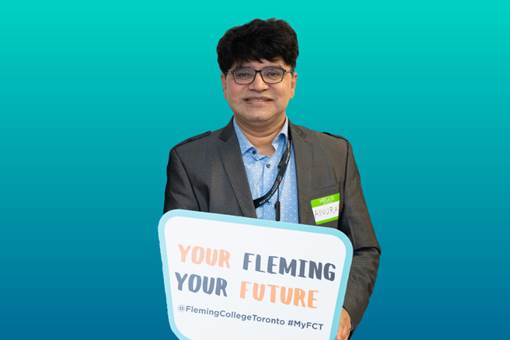5 Questions for Giovanna Fontoura, Martial Artist & FCT Instructor
- November 09, 2023
- Career

Reading Time: 5 Minutes
Giovanna Fontoura has many titles: Project manager. FCT instructor. Martial artist. We had a chance to talk to her about how these different roles converge in her life, leading to some fascinating insights about the connections between business, education, and athletics.
How did you get started with martial arts?
My brother was a black belt in Brazilian jiu-jitsu, and he served as an inspiration to pursue martial arts. However, I was a bit afraid of doing a sport that would hurt. That’s when a friend told me about aikido, a nonconfrontational martial art, where the goal is not to hurt your opponent, but to blend with their movements.
I stepped on the mat for the first time in 2009, and somehow aikido became a passion and a big part of my life. I feel really connected with it. It has become a way to connect and communicate with others through movement. It has sharpened my perception and helped me express myself and explore new possibilities. Aikido is where I challenge my limits to become a better version of myself and find harmony. The mat is a place where I see unique learnings that I can transcend and incorporate into my daily life.
How do martial arts relate to your teaching?
There is a metaphor. When you start training in martial arts, you wear a white belt. This represents a beginner and embodies openness and eagerness to learn. After many years of practice, you receive a blackbelt, which demonstrates a high level of knowledge and technique. But this does not mean that your journey has ended. Instead, it shows a new start.
After that, you keep practicing, learning, and maintaining an open mind. Over time, the colour of your black belt will fade to white. This represents a return to the eagerness and openness of a beginner. Those at an advanced level maintain this beginner’s mindset as it encourages continuous growth and improvement.
I think that applies to teaching. It doesn’t matter how much you know. You have to keep learning and reinventing yourself.
How do martial arts relate to project management?
In my opinion, there are three main concepts that align martial arts with project management.
The first is musubi. It means connection and blending. In akido, we learn how to connect with people. You learn how to respond to other people's movements, how to blend their movement with your own. As a Project Manager, you do something similar with stakeholders. You must promote collaboration through empathy and understanding. You must be flexible to adapt in the face of conflict. For me, this helps with adaptability in project management. It also relates to how to teach project management.
The second concept is kuzushi. Its about breaking balance and emphasizes the importance of leverage, allowing practitioners to control and subdue opponents. It's not only applicable to physical confrontations but also to situations requiring strategic advantage or control.
The last is zanshin. It refers to continuous vigilance and focused attention. Like in martial arts, where practitioners remain alert after executing a move, in project management, zanshin prompts reflective analysis, adaptability to change, proactive risk management, and preparedness to pivot strategies when necessary. This mindset ensures that projects are managed with a persistent readiness, ultimately enhancing the likelihood of successful outcomes.
What advice do you have for newcomers to Canada?
Learning what drives you is very important. Some people come here, and they get distracted by paying rent and searching for jobs. My advice is to focus on your long-term goals. Really try to pursue what you love. This will make your life meaningful. If you do good projects that you believe in, you’re going to make a difference in your life. People will notice. They will say everything that this person does has quality, has intention, has purpose. All hard work pays off.
What if you don’t know what you want to do yet?
If you don’t know what you want to do yet, keep yourself open to experiences. You can’t just be stuck at home checking social media. You need to experience things. Toronto is a fantastic place for this. You can do anything here.
Repeat after me: Fear is curiosity. Anxiety is excitement. Repeat this until your brain starts to change. That’s what I did. I used to be afraid of public speaking. I used to hold a coffee mug with both hands in class because one of my hands was always shaking. Then I did this. Now I love public speaking.
If you’re ready to take on a new challenge, consider studying project management with Giovanna and other talented instructors.
Read more blogs
From Türkiye to Toronto: Elifsu’s Journey as an International Student
Elifsu shares her story of being an international student and adjusting to life in Toronto.…
Student Perspectives: Navigating the Job Market with Career Services
Vankita talks about how she landed a job and adapted to workplace culture.…
5 Questions for Anurag Mathur, FCT Business Instructor
Get out of your comfort zone and open your mind with the help of our esteemed instructor…



